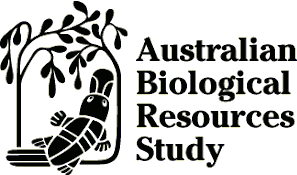Australian Tropical Rainforest Plants - Online edition
Ficus obliqua G.Forst.

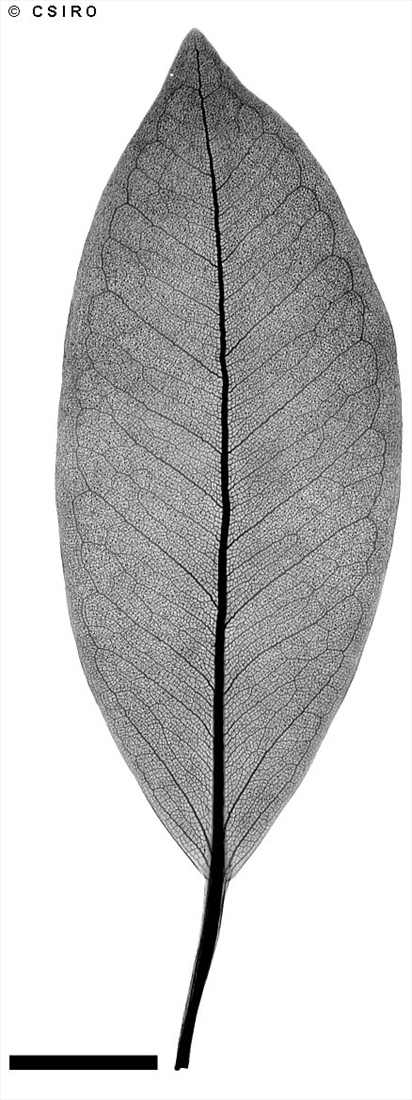
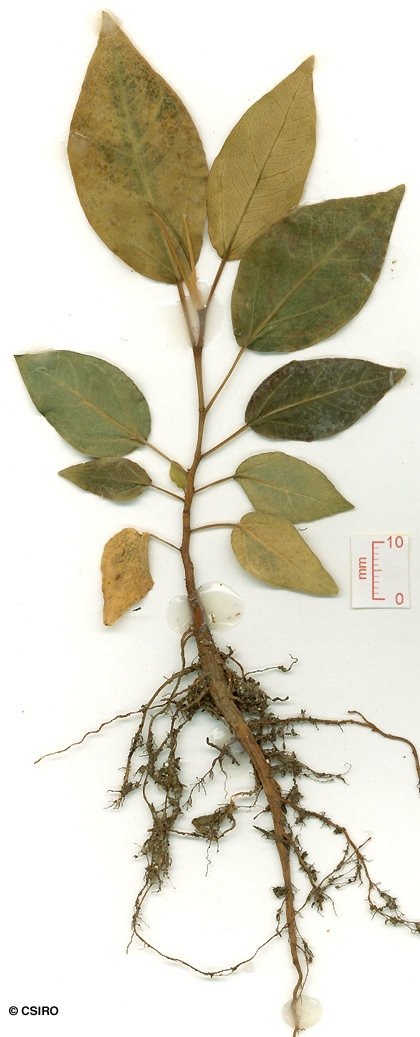
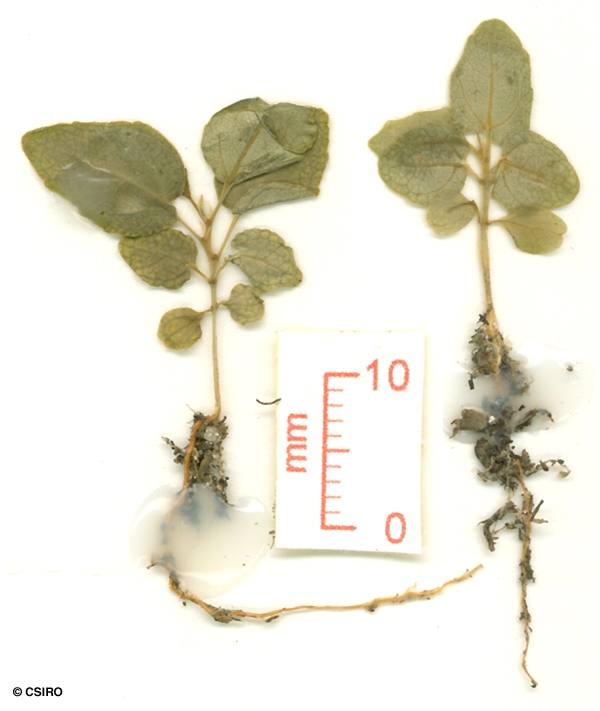
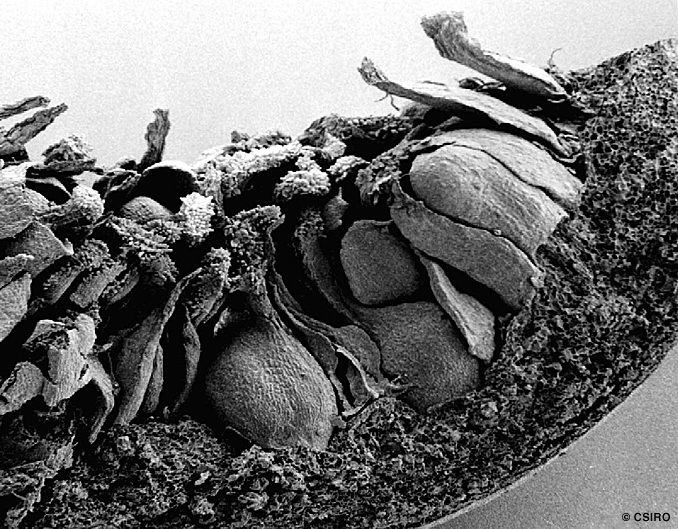
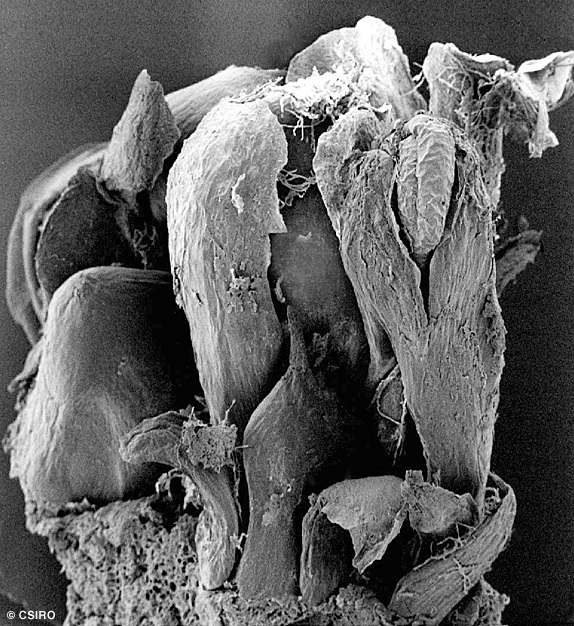
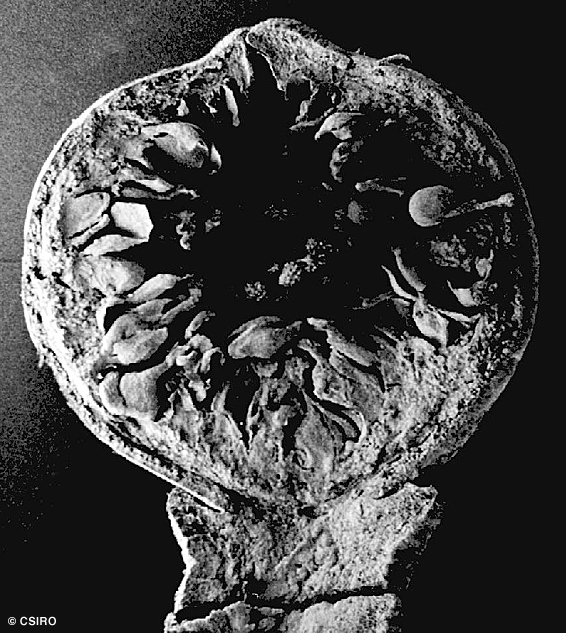
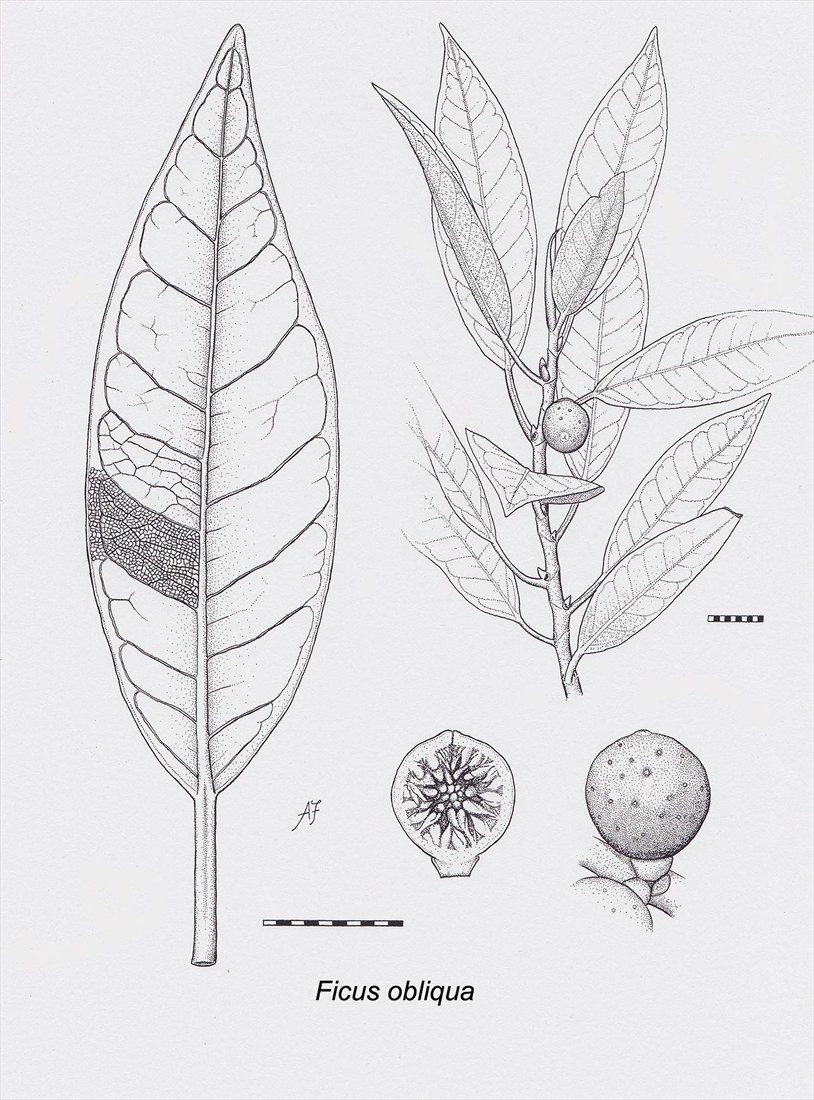
Forster, J.G. (1786) Florulae Insularum Australium Prodromus : 77. Type: Vanuatu, Namoka, Tanna Island, G. Forster. Fide Dixon et al. (2001).
Small Leaved Fig; Small-leafed Fig; Small Leaf Fig; Fig, Small-leafed; Fig, Small Leaved; Fig, Small Leaf; Fig; Figwood
A strangling fig. Exudate copious.
Figs shortly pedunculate, globose, about 6-10 mm diam. Orifice triradiate, +/- closed by inflexed internal bracts.
Cotyledons +/- orbicular, about 2-4 mm diam., apex emarginate with a small gland (visible with a lens) in the notch. A few 'oil dots' visible with a lens. First pair of leaves toothed. At the tenth leaf stage: leaf blade lanceolate, margins usually entire, glabrous; oil dots not visible; petiole and stem glabrous; stipules large, sheathing the terminal bud, narrowly triangular, about 10-30 mm long, glabrous. Taproot swollen, carrot-like (Daucus carota). Seed germination time 11 to 28 days.
Fruit eaten by Cassowaries. Cooper & Cooper (1994).
Food plant for the larval stages of the Australian Crow and Eichhorn's Crow Butterflies. Common & Waterhouse (1981).
This species may have medicinal properties. (http://squid2.laughingsquid.net/hosts/herbweb.com /herbage/A11264.htm)




